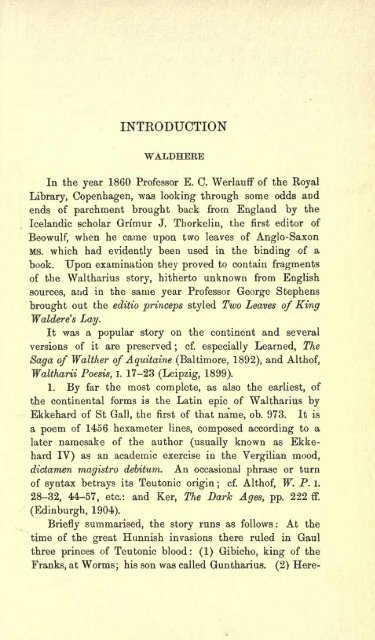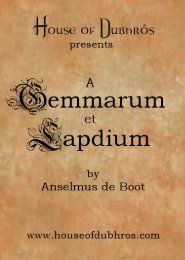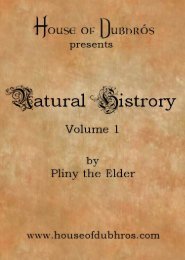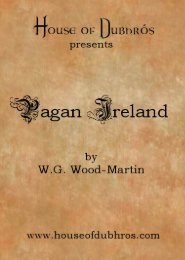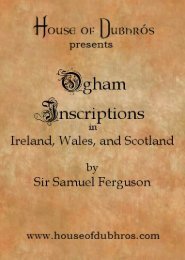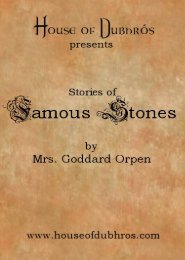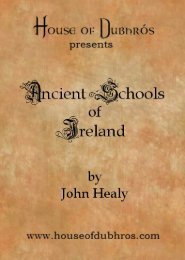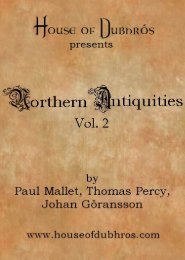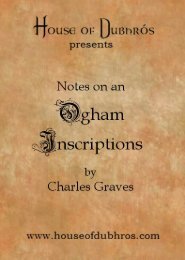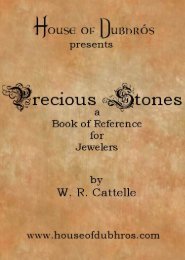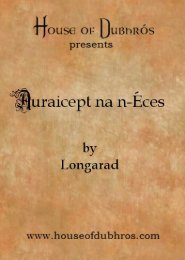You also want an ePaper? Increase the reach of your titles
YUMPU automatically turns print PDFs into web optimized ePapers that Google loves.
INTRODUCTION<br />
WALDHERE<br />
In the year 1860 Pr<strong>of</strong>essor E. C. Werlauff <strong>of</strong> the Royal<br />
Library, Copenhagen, was looking through some odds and<br />
ends <strong>of</strong> parchment brought back from England by the<br />
Icelandic scholar Grimur J. Thorkelin, the first editor <strong>of</strong><br />
Beowulf, when he came upon two leaves <strong>of</strong> Anglo-Saxon<br />
MS. which had evidently been used in the binding <strong>of</strong> a<br />
book. Upon examination they proved to contain fragments<br />
<strong>of</strong> the Waltharius story, hitherto unknown from English<br />
sources, and in the same year Pr<strong>of</strong>essor George Stephens<br />
brought out the editio princeps styled Two Leaves <strong>of</strong> King<br />
Waldere's Lay.<br />
It was a popular story on the continent and several<br />
versions <strong>of</strong> it are preserved ; cf. especially Learned, The<br />
Saga <strong>of</strong> Walther <strong>of</strong> Aquitaine (Baltimore, 1892), and Alth<strong>of</strong>,<br />
Waltharii Poesis, I. 17-23 (Leipzig, 1899).<br />
1. By far the most complete, as also the earliest, <strong>of</strong><br />
the continental forms is the Latin epic <strong>of</strong> Waltharius by<br />
Ekkehard <strong>of</strong> St Gall, the first <strong>of</strong> that name, ob. 973. It is<br />
a poem <strong>of</strong> 1456 hexameter lines, composed according to a<br />
later namesake <strong>of</strong> the author (usually known as Ekke<br />
hard IV) as an academic exercise in the Vergilian mood,<br />
dictamen magistro debitum. An occasional phrase or turn<br />
<strong>of</strong> syntax betrays its Teutonic origin ; cf. Alth<strong>of</strong>, W. P. I.<br />
28-32, 44-57, etc.: and Ker, The Dark Ages, pp. 222 ff.<br />
(Edinburgh, 1904).<br />
Briefly summarised, the story runs as follows: At the<br />
time <strong>of</strong> the great Hunnish invasions there ruled in Gaul<br />
three princes <strong>of</strong> Teutonic blood : (1) Gibicho, king<br />
<strong>of</strong> the<br />
Franks, at Worms; his son was called Guntharius. (2) Here-


